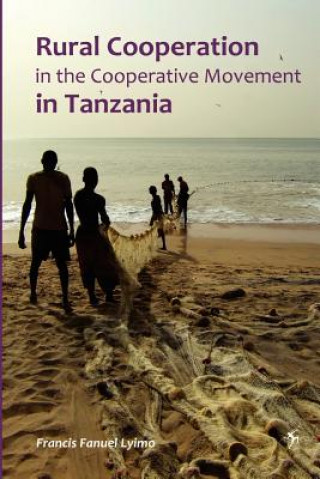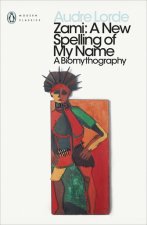
Kód: 09019604
Rural Cooperation. In The Cooperative Movement in Tanzania
Autor Francis Fanuel Lyimo
'No person, no country in the world, irrespective of its stage of development, is fully self-sufficient. Cooperation brings together peoples and nations and facilitates peaceful co-existence.' So begins Rural Cooperation In The Co ... celý popis
- Jazyk:
 Angličtina
Angličtina - Väzba: Brožovaná
- Počet strán: 174
Nakladateľ: Mkuki na Nyota Publishers, 2012
- Viac informácií o knihe

Mohlo by sa vám tiež páčiť
Darujte túto knihu ešte dnes
- Objednajte knihu a vyberte Zaslať ako darček.
- Obratom obdržíte darovací poukaz na knihu, ktorý môžete ihneď odovzdať obdarovanému.
- Knihu zašleme na adresu obdarovaného, o nič sa nestaráte.
Viac informácií o knihe Rural Cooperation. In The Cooperative Movement in Tanzania
Nákupom získate 135 bodov
 Anotácia knihy
Anotácia knihy
'No person, no country in the world, irrespective of its stage of development, is fully self-sufficient. Cooperation brings together peoples and nations and facilitates peaceful co-existence.' So begins Rural Cooperation In The Cooperative Movement In Tanzania, what will undoubtedly be seen as a seminal work in the field. The author has lectured a course on Rural Cooperation in Tanzania at the University of Dar es Salaam for seven consecutive years, but lack of appropriate books with adequate coverage of the course content obliged him to conduct extensive research on cooperation and cooperatives. The resulting book covers the entire field and addresses the subject by providing a foundation on which wider study can be based. It is intended to make its readers aware of the strategies and challenges of cooperation and has a wider relevance, as it will be useful to policy makers in the cooperative sector, which is a significant part of the private sector in Tanzania, and indeed in most African countries. By June 2008, there were 2614 agricultural marketing cooperative societies, 4780 savings and credits cooperative societies, 71 livestock cooperative societies, 129 fishing cooperative societies, 11 housing cooperative societies, 3 mining cooperative societies, 185 industrial cooperative societies, 98 water irrigation cooperative societies, 4 transport cooperative societies, 103 consumer cooperative societies, and 553 service and other cooperative societies; perfectly illustrative of the movement's scope and the need to pay it careful attention. The topics included make it appropriate for use in Sociology, Rural Development, Marketing, Development Studies and studies in other specialties in the Social Sciences. From an exploration of the cooperative movement's various international iterations to a perspicacious survey of the history of cooperatives in Tanzania, Dr. Lyimo highlights the issues facing farmers and business people and illustrates the way in which cooperative effort- enterprises that put people, and not capital, at the center of their business- can not only improve members' economic power in bargaining for better marketing conditions and prices, but also to increase employment opportunities, thereby improving the standard of living for a large number of people. In these times of penury and economic disenfranchisement, this book not only fills the information gap, but provides, in the ultimate chapters, 'Procedures for Organizing a Cooperative Society', and 'Managing Rural Cooperative Societies', the basic principles and advice for those considering the cooperative model as the best means of improving their economic viability.
 Parametre knihy
Parametre knihy
Zaradenie knihy Knihy po anglicky Society & social sciences Society & culture: general Social groups
54.34 €
- Celý názov: Rural Cooperation. In The Cooperative Movement in Tanzania
- Autor: Francis Fanuel Lyimo
- Jazyk:
 Angličtina
Angličtina - Väzba: Brožovaná
- Počet strán: 174
- EAN: 9789987081554
- ISBN: 9789987081554
- ID: 09019604
- Nakladateľ: Mkuki na Nyota Publishers
- Hmotnosť: 280 g
- Rozmery: 228 × 153 × 11 mm
- Dátum vydania: 05. September 2012
Obľúbené z iného súdka
-

Women Who Run with the Wolves
11.94 € -

The Way of Men
13.99 € -19 % -

Nice Girls Don't Get The Corner Office
10.51 € -19 % -

Eros and Mysteries of Love
17.15 € -19 % -

Way of All Women
31.35 € -13 % -

Freedom Writers Diary
15.31 € -9 % -

When God Was A Woman
19.60 € -4 % -

Story of the Jews
13.17 € -22 % -

Woman's Dictionary of Sacred Objects
27.37 € -6 % -

Belonging
17.05 € -21 % -

The Spiral Dance
19.20 € -6 % -

Don't Sleep, There are Snakes
12.76 € -24 % -

After Kinship
34.62 € -4 % -

Beyond the Rope
26.14 € -3 % -

Think Like a Monk
15.72 € -24 % -

Second Sex
16.54 € -23 % -

Tom of Finland. The Complete Kake Comics
21.14 € -

Women Who Run With The Wolves
17.56 € -9 % -

Goddesses in Everywoman
12.25 € -23 % -

Orientalism
11.02 € -23 % -

Who Cooked the Last Supper?
19.81 € -7 % -

The Autobiography of Malcolm X
10.51 € -8 % -

The Mastery of Love
12.25 € -20 % -

Empire of the Summer Moon
14.39 € -23 % -

Desert Flower
10.21 € -24 % -

Dance of Anger
11.13 € -23 % -

World's Best Cities
38.81 € -5 % -

Manipulated Man
13.99 € -19 % -

Allegory and Philosophy in Avicenna (Ibn Sina)
80.90 € -

The Male Nude
18.28 € -10 % -

Talking with Female Serial Killers - A chilling study of the most evil women in the world
11.13 € -23 % -

The Bell Curve
18.69 € -23 % -

Culture of Critique
23.90 € -18 % -

Intellectuals and Society
22.36 € -21 % -

Beauty Sick
12.25 € -23 % -

Black Rednecks & White Liberals
21.85 € -16 % -

Witches, Midwives, And Nurses
13.37 € -

Generations
19.91 € -14 % -

Zami
10.10 € -22 % -

Muhammad: His Life Based on the Earliest Sources
20.83 € -23 % -

Wisdom of the Native Americans
20.01 € -1 % -

Gender Trouble
27.16 € -4 % -

Anglo-American Establishment - Original Edition
29.11 € -

Notes of a Native Son
10.10 € -22 % -

Black Elk Speaks
20.42 € -12 % -

Complete Book of Pilates for Men
19.30 € -20 % -

Rule by Secrecy
12.25 € -23 % -

Biological Exuberance
39.01 € -

Preliminary Materials for a Theory of the Young-Girl
13.58 € -17 %
Osobný odber Bratislava a 2642 dalších
Copyright ©2008-24 najlacnejsie-knihy.sk Všetky práva vyhradenéSúkromieCookies







 21 miliónov titulov
21 miliónov titulov Vrátenie do mesiaca
Vrátenie do mesiaca 02/210 210 99 (8-15.30h)
02/210 210 99 (8-15.30h)